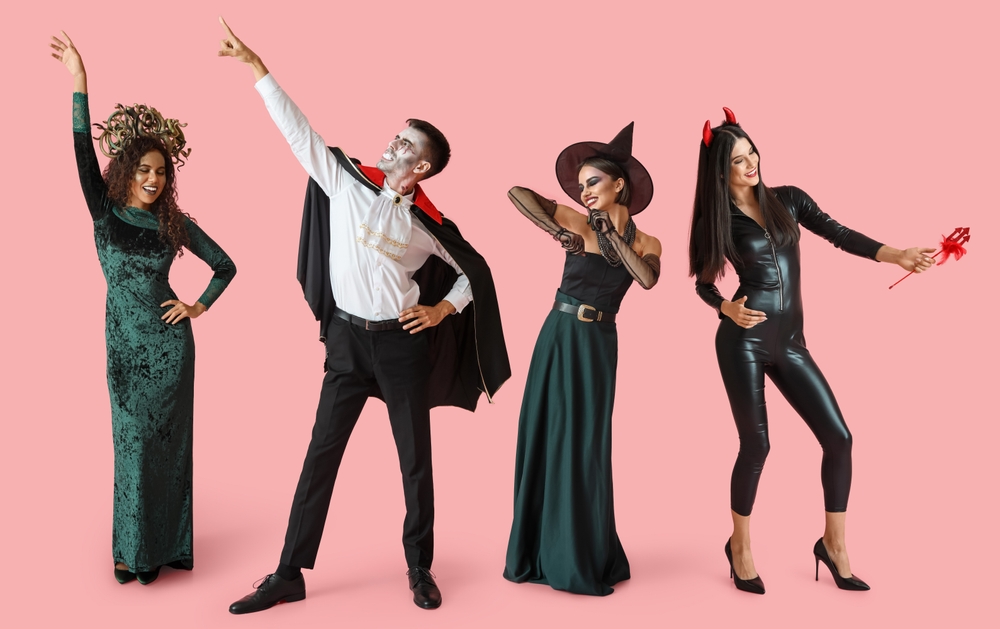Overview:
When designing and manufacturing Halloween costumes, are some brands dressing up trademarks to the point of infringement?
The Big Business of Dressing Up
Spirit Halloween, the largest Halloween-only store in the world, makes over $1.1 billion in profit annually, profiting from an increase in spending during and before Halloween. The internet is full of jokes about Spirit Halloween occupying any recently vacant building, as the company frequently transforms commercial real estate into seasonal frightmarts. U.S. consumers spent $10.6 billion on Halloween in 2022, with 2023 numbers expected to increase to $12.2 billion. Where there is this kind of market growth, there is competition for consumers.
Halloween costumes in the United States take on different themes annually. Unlike countries where Halloween is more closely associated with Catholic traditions or pagan holidays, Halloween costumes in the United States are more secular and vary widely, from a stalk of corn to a character from the wearer’s favorite movie. When people dress up or imitate a product or brand, what intellectual property lines are drawn, and is there potential for trademark infringement disguised as a costume?
Kool it, Klown, Says Disney
The clothing parts of most costumes are ineligible for copyright protection because they serve a practical purpose and are wearable. However, there are exceptions when the costumes have graphic, sculptural, or pictorial features outside the practical use. A Supreme Court decision, Star Athletica v. Varsity Brands, ruled that a feature incorporated into a garment can be copyrighted when it is perceived as a two- or three-dimensional work of art separate from the garment, and would be copyrightable on its own.
However, there are exceptions, including the use of trademarks on costumes. Many companies license trademarks or copyrights for Halloween costumes, such as in superhero costumes. Trademark and copyright holders will go to court to protect their intellectual property when their works and marks are significantly diluted or infringed.
In 2008, The Walt Disney Company, arguably one of the most iconic manufacturers of children’s entertainment, brought a federal trademark infringement suit against Kool Klown Party People, Inc. for advertising and selling costumes that resembled Disney’s characters, Tigger and Eeyore, from the book and movie Winnie the Pooh. KKPP sold adult-size costumes of the characters, for which Disney held trademarks. These costumes were additionally used in unlicensed events depicting the Disney characters. This case ultimately settled in Disney’s favor.
In another action involving Disney, Disney Enterprises Inc., Marvel Characters Inc., and Lucasfilm Ltd. LLC sued Characters for Hire LLC and Nick Sarelli for copyright and trademark infringement. The suit alleged that the company, which Sarelli owned and managed, offered party services and entertainment using protected characters, including Mickey Mouse; Elsa and Anna from the motion picture “Frozen”; Captain America, Hulk, and Iron Man from “The Avengers”; and various “Star Wars” characters. Characters for Hire claimed that the characters were derived from prior works in the public domain and that their use was fair use. In the court’s summary judgment ruling, it focused on the likelihood of confusion between the affiliation of CFH and Disney, Marvel, and LucasFilms. The court ultimately found for the defendants on the trademark claims, dismissing those parts of the case, because there was no strong likelihood of consumer confusion.
Halloween Costumes, Copyright, and Trademark
In both of these cases relating to Disney, how the infringing businesses used costumes for profit was central to the cases. In the second case, the court relied on likelihood of confusion standards to make its decision; however, the case did not include consumer surveys.
Costumes and characters play a fun role during the season of Halloween for adults and children, usually without infringing on trademarks. If you are involved in a trademark infringement action and require reliable consumer surveys, contact MMR Strategy Group.
